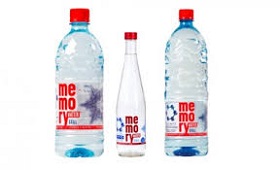Budget, Funds, Latvia, Markets and Companies
International Internet Magazine. Baltic States news & analytics
Thursday, 18.04.2024, 12:35
Welfare Ministry has ignored essence of law in granting social enterprise's status to Memory Water - association
 Print version
Print version |
|---|
Ulande stressed that a solution had to be found to prevent
such instances from recurring.
According to the law, the sole and main purpose of a social
enterprise is to create positive social influence in a particular area, that
is, all the activities of the enterprise must be aimed at achieving that
objective.
"The essence of a social enterprise is to achieve its
social goals through everything it does, produces, buys and sells, in this
particular case it should have been promotion of the employment of people with
disabilities. It is a fundamental difference from simply being a socially
responsible company, which now and then does something good, to a greater or
lesser degree," said Ulande.
In case of Memory Water, Ulande is not convinced that the
sole purpose of the company has been and will be to employ people with
disabilities. "Considering both the company's turnover and profit figures
and their correlation with the workload and pay of employees with disabilities,
there is a reasonable suspicion that people with disabilities are being used as
cover so the company could get the status of a social enterprise and therefore
qualify for financing from the European Social Fund. Such situations are
unacceptable," she stressed.
Ulande, who has participated in drafting of the Social
Enterprise Law, points out that a panel of experts interprets and applies provisions
of the law on a case-by-case basis. "That is why there is the experts'
commission that reviews each individual case. The Welfare Ministry has ignored
the commission's reasons and conclusions and, for no good reason, decided
otherwise. Formally, the ministry has acted in accordance with the law, but it
has ignored the essence and spirit of the law," believes Ulande.
TV program Neka Personiga (Nothing Personal) reported
earlier this week that the Welfare Ministry, contrary to experts' opinion,
granted the status of a social enterprise to Memory Water, thus enabling the
company to apply for the European Union's funds.
According to Neka Personiga, this is the first time that
granting the social enterprise's status to a company is opposed by experts, but
the Welfare Ministry ignores their opinion.
Last year, the company received a grant of EUR 133,000 from
the Welfare Ministry and Development Finance Institution Altum as part of the
project Support for Social Entrepreneurship. The aim of the program is to bring
back to the labor market persons who do not work for social, health or other
reasons. In order to receive the grant, Memory Water hired 13 people with
disabilities, but the bulk of the grant, EUR 100,000, was spent on buying a
water filling and packaging facility.
This year, the company plans to apply for additional
financing, which is why in August it applied for a social enterprise's status.
Prana Energy, another company owned by Janis Plavins, the founder of Memory
Water, has also applied for the status. The two companies believe that they meet
the requirements as half of employees are people with disabilities.
It has turned out, however, that of the 13 people with
disabilities employed by Memory Water, only one is paid a salary higher than
the minimum salary, while nine people are paid less than EUR 35 a month,
working ten hours a month.








 «The Baltic Course» Is Sold and Stays in Business!
«The Baltic Course» Is Sold and Stays in Business!

